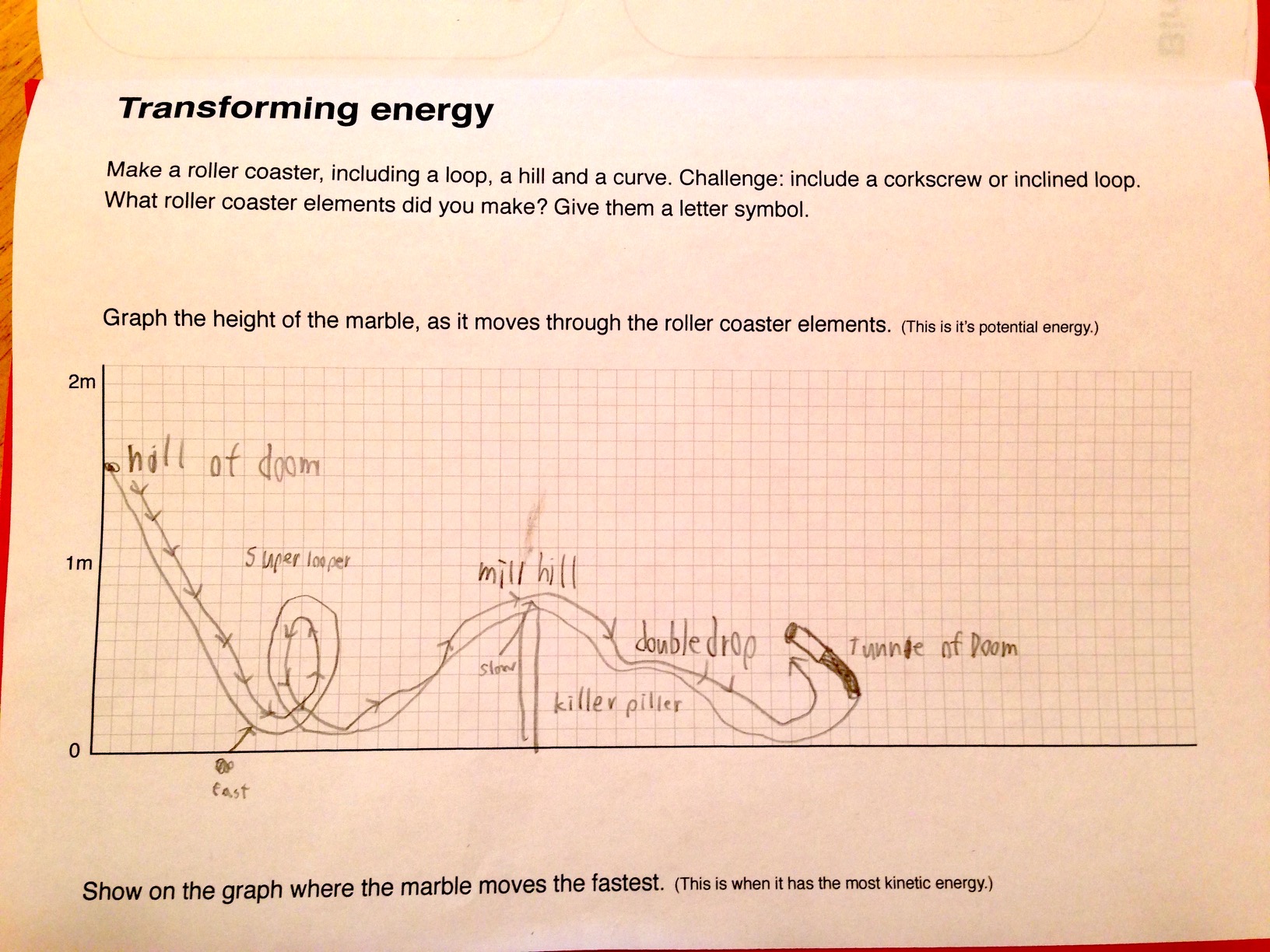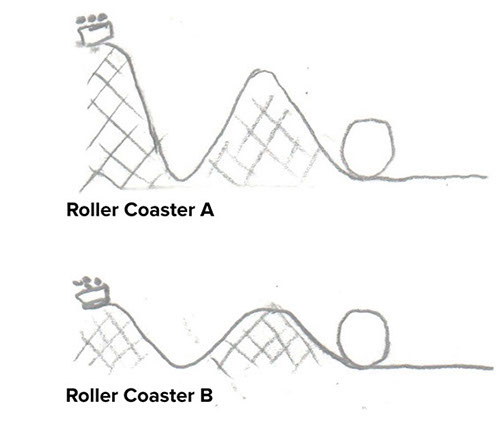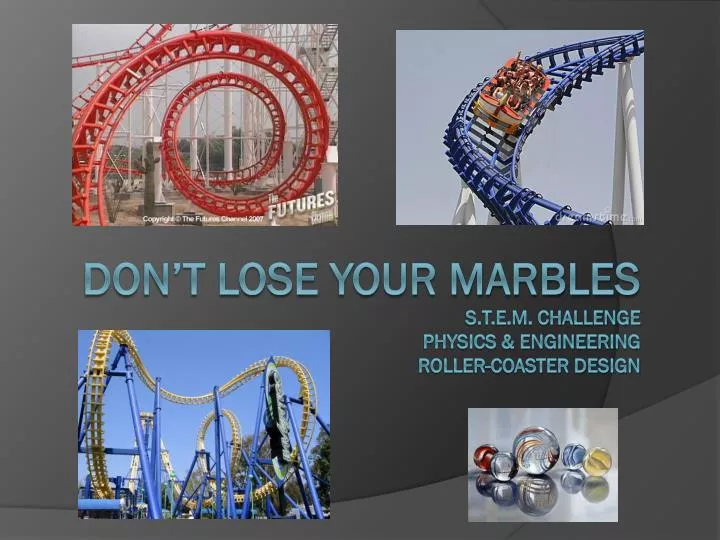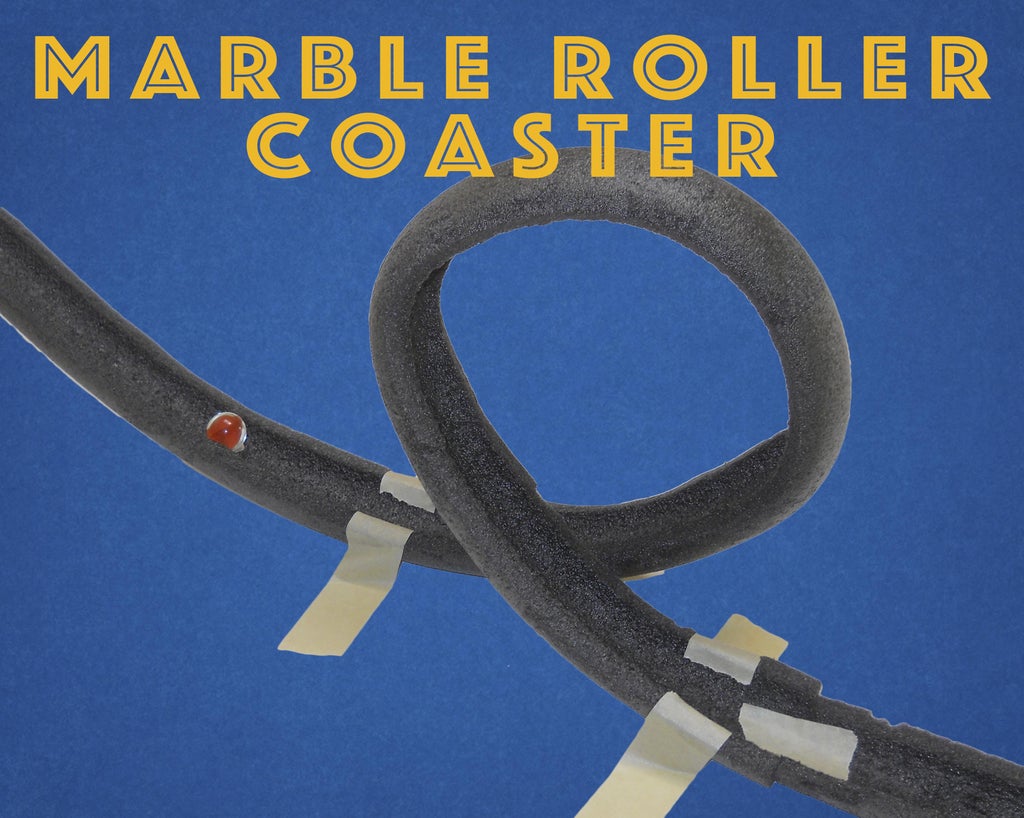In this experiment you see that the run section needs to be placed higher than the top of the loop in order for the marble to travel the loop completely.
Marble roller coaster challenge points loops.
A roller coaster loop the loop is a sort of centrifuge just like a merry go round.
The marble must land in the cup at the end of the run.
The foam pipe insulation has tape you can rip off to seal the long edge.
Build a marble roller coaster from foam pipe insulation in this fun science project.
Build a roller coaster that has 2 hills including the initial hill and 1 vertical loop.
The roller coaster is a great demonstration of the law of conservation of energy.
If you watch the marble closely you might be able to see that it is going the fastest right at the bottom of the hill before it enters the loop.
If the hill is too small and the marble is travelling too fast the marble s momentum will carry it up the hill and then continue it s trajectory off the track.
Here are some guidelines for building your marble roller coaster.
Use the duct tape to connect the pieces to each other making a single long tube.
You ll build a roller coaster track for marbles using foam pipe insulation and masking tape and see how much of an initial drop is required to get the marble to loop the loop it s a great way to learn about how stored energy potential energy is converted into the energy of motion kinetic energy.
The challenge is to create a roller coaster for a marble to ride down with at least one loop and one turn.
As the marble rolls down the hill its potential.
If you need to you may tape your roller coaster to furniture.
In a merry go round the spinning platform pushes you out in a straight line away from the platform.
Your marble must not fall off until it gets to the end of the track.
In an isolated system such as the roller coaster the total energy remains constant.
Points are awarded for each of the following items included in a group s roller coaster.
Get hands on exploring what kinds of loops are possible how energy changes during a ride and how the laws of motion come into play.
Roller coasters and marble runs offer an engaging platform for invention engineering and physics based investigation.
Technical points based on degree of difficulty every 50 cm of height 10 point 90º turn 10 point 180º turn 20 points 270º turn 30 points loop 30 points corkscrew 40 points performance points points are awarded for each type of marble that successfully completes the roller coaster and lands in the paper cup.
Upside down loops are created by taping a piece of track upside down onto the end of a track then curving the upside down piece so that it becomes right side up.
You may only use the materials provided exception.










